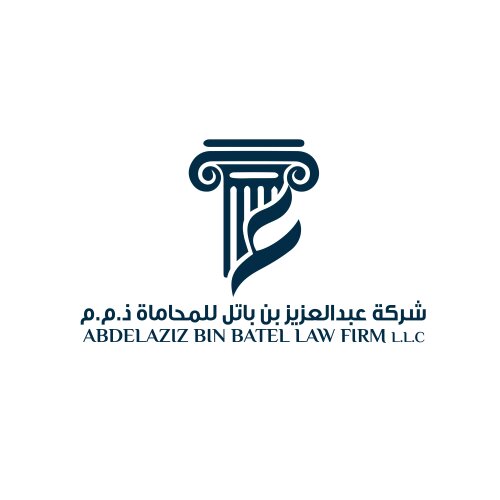
Best Data Center & Digital Infrastructure Lawyers in Jeddah
Share your needs with us, get contacted by law firms.
Free. Takes 2 min.
List of the best lawyers in Jeddah, Saudi Arabia

About Data Center & Digital Infrastructure Law in Jeddah, Saudi Arabia
Jeddah, as a major economic hub in Saudi Arabia, is experiencing significant growth in the data center and digital infrastructure sector. This development aligns with the Kingdom's Vision 2030 initiative, which emphasizes digital transformation across industries. Data center projects in Jeddah involve complex considerations, including the procurement, operation, maintenance, and regulatory compliance related to information technology, data storage, and interconnection services. The legal framework governing these areas is shaped by both national laws such as the Saudi Personal Data Protection Law and local regulatory policies put forth by authorities in Jeddah, making legal compliance a key element for successful ventures in this fast-evolving field.
Why You May Need a Lawyer
Legal assistance is crucial in the data center and digital infrastructure space for several reasons. Common scenarios where legal expertise is required include:
- Drafting and negotiating contracts for data center construction, leasing, or co-location services.
- Ensuring compliance with data privacy and protection regulations, especially concerning the cross-border transfer of personal data.
- Managing disputes related to service level agreements (SLAs) or breaches of contract.
- Navigating licensing requirements imposed by governmental or regulatory authorities in Jeddah.
- Advising on intellectual property and technology transfer issues linked to digital infrastructure projects.
- Understanding liability in case of cyber attacks, data breaches, or business interruptions.
- Facilitating due diligence during mergers, acquisitions, or investments in data center infrastructure.
Securing informed legal guidance can help avoid costly mistakes and ensure that your business operates within the bounds of relevant laws and regulations.
Local Laws Overview
Data center and digital infrastructure operations in Jeddah are governed by a combination of international standards and strictly enforced Saudi laws. Some of the most relevant legal aspects include:
- Personal Data Protection Law (PDPL): The Saudi Personal Data Protection Law prescribes requirements for the collection, processing, and storage of personal data, with a strong emphasis on data residency and permissions for transferring data abroad.
- Cloud Computing Regulatory Framework (CCRF): Issued by the Communications, Space & Technology Commission (CST), this framework establishes obligations for providers offering cloud computing or related infrastructure services.
- Licensing and Regulatory Approval: Operators must obtain necessary permits from local authorities in Jeddah, including municipal permits and, where applicable, CST approvals.
- Civil and Commercial Codes: These regulate contracts, business formation, and commercial disputes relevant to service providers, clients, and investors.
- Crisis Management and Cybersecurity: The Essential Cybersecurity Controls, as set out by the National Cybersecurity Authority, outline protection and response obligations for digital infrastructure providers.
Understanding and adhering to these laws is critical, as non-compliance can result in significant penalties, business interruptions, or reputational harm.
Frequently Asked Questions
What laws apply to data centers in Jeddah?
Data centers in Jeddah are governed by national laws such as the Personal Data Protection Law, regulations issued by the Communications, Space & Technology Commission, and local licensing rules set by Jeddah authorities.
Is data localization required for data centers in Saudi Arabia?
Certain categories of sensitive data must be stored within the Kingdom, according to the Personal Data Protection Law and the Cloud Computing Regulatory Framework, subject to approval for any cross-border transfers.
Do I need a specific license to operate a data center in Jeddah?
Yes, you will likely need one or more licenses from the Communications, Space & Technology Commission as well as from local authorities in Jeddah, depending on your business activities.
What are the penalties for non-compliance with data privacy laws?
Penalties can include substantial fines, possible suspension of operations, and even criminal liability for severe breaches, such as unauthorized disclosure of personal data.
Who enforces data center regulations in Jeddah?
Enforcement is primarily handled by the Communications, Space & Technology Commission and the National Cybersecurity Authority, alongside local municipal authorities.
Are foreign investors allowed to own data centers in Jeddah?
Yes, but foreign investors must comply with investment and licensing regulations, which may involve obtaining approval from the Saudi Arabian General Investment Authority (SAGIA) and other regulatory bodies.
How are disputes between data center clients and operators resolved?
Disputes are typically handled according to the terms of the contract and may be resolved through negotiation, mediation, arbitration, or litigation before the Saudi courts.
What are my obligations regarding cybersecurity?
Operators are expected to implement the Essential Cybersecurity Controls as outlined by the National Cybersecurity Authority to protect sensitive data and infrastructure.
Can data center operators transfer customer data outside Saudi Arabia?
Transfers of personal data abroad are highly restricted and generally require explicit permission from the Saudi Data and Artificial Intelligence Authority, unless specific exceptions apply.
How can a lawyer assist in setting up a data center in Jeddah?
A lawyer can provide guidance on regulatory compliance, contract drafting, risk assessment, handling license applications, intellectual property rights, and ongoing legal obligations related to your operation.
Additional Resources
For those seeking more information or legal support related to data centers and digital infrastructure in Jeddah, the following resources can be helpful:
- Communications, Space & Technology Commission (CST): Oversees licensing, regulatory compliance, and standards for IT and digital infrastructure in Saudi Arabia.
- National Cybersecurity Authority: Sets cybersecurity requirements and issues related guidelines and standards for all digital infrastructure operators.
- Saudi Data and Artificial Intelligence Authority (SDAIA): Regulates personal data protection and data residency issues.
- Jeddah Municipality: Provides permits and local approvals for physical data center construction and operations.
- Ministry of Investment (formerly SAGIA): Assists with foreign investment, company registration, and guidance for international participants.
Next Steps
If you are involved in or considering activities related to data centers or digital infrastructure in Jeddah, it is important to consult with a qualified legal professional familiar with local regulations and industry practices. Start by gathering relevant information about your proposed activities, including project scope, business partners, and intended services. Contact a lawyer or law firm with expertise in technology and infrastructure law in Saudi Arabia to schedule a consultation. Be prepared to discuss your specific objectives and any concerns regarding regulatory compliance or business risks. Timely legal guidance will help you navigate complex regulations, avoid unnecessary legal pitfalls, and establish a resilient and compliant digital infrastructure operation in Jeddah.
Lawzana helps you find the best lawyers and law firms in Jeddah through a curated and pre-screened list of qualified legal professionals. Our platform offers rankings and detailed profiles of attorneys and law firms, allowing you to compare based on practice areas, including Data Center & Digital Infrastructure, experience, and client feedback.
Each profile includes a description of the firm's areas of practice, client reviews, team members and partners, year of establishment, spoken languages, office locations, contact information, social media presence, and any published articles or resources. Most firms on our platform speak English and are experienced in both local and international legal matters.
Get a quote from top-rated law firms in Jeddah, Saudi Arabia — quickly, securely, and without unnecessary hassle.
Disclaimer:
The information provided on this page is for general informational purposes only and does not constitute legal advice. While we strive to ensure the accuracy and relevance of the content, legal information may change over time, and interpretations of the law can vary. You should always consult with a qualified legal professional for advice specific to your situation.
We disclaim all liability for actions taken or not taken based on the content of this page. If you believe any information is incorrect or outdated, please contact us, and we will review and update it where appropriate.










